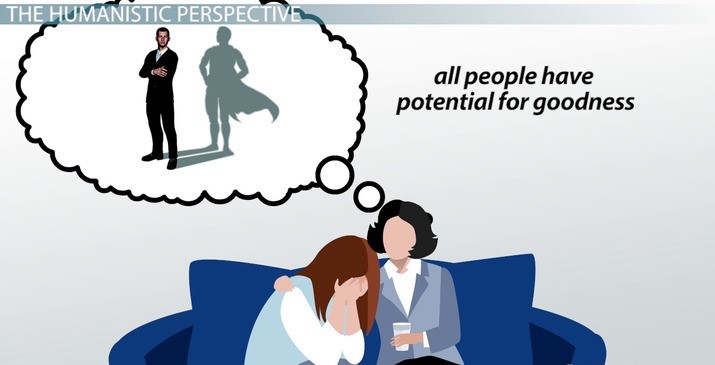Why Americans Love Donald Trump: An Exploration of Political Popularity

Donald Trump’s rise to political prominence and the enduring support he garnered among a significant portion of the American populace remains a subject of intense debate and analysis. While his presidency was marked by controversy, divisiveness, and unprecedented events, his popularity among a segment of Americans is undeniable.
As the US approaches the 2024 elections, Trump’s popularity in some states is still strong. But why is some good chunk of the American electorate so supportive of his Presidency? How did, and has he (Trump) managed to gain immense political popularity as we see him today? To understand this phenomenon, one must delve into the different reasons behind the sincere support that Trump has received during his political career.
Outsider Appeal
One of the most significant factors contributing to Trump’s popularity was his status as a political outsider during his first presidential bid. Before this, Trump was primarily known as a business mogul and reality TV personality rather than a seasoned politician. This lack of political experience resonated with voters disillusioned with the traditional political establishment, leading many to view Trump as a refreshing alternative to the status quo.
Americans often express frustration with the perceived inefficiency and corruption of Washington, D.C., politics. Trump’s promise to “drain the swamp” and shake up the existing political system appealed to those seeking change and a break from conventional politics. His outsider status was seen as an asset, allowing him to approach problems from a different perspective and challenge the entrenched interests many believed had held back the country’s progress.
Economic Promises
During his campaign and presidency, Trump frequently touted his business acumen and promised to revitalize the American economy. He championed tax cuts, and deregulation, and renegotiated trade deals as key components of his economic agenda. For many Americans, particularly those in economically distressed regions, Trump’s economic promises offered hope for better job opportunities, higher wages, and overall prosperity.
His supporters often pointed to the pre-pandemic economic growth, record-low unemployment rates, and rising stock market as evidence of his success in delivering on these promises. While economists debate the extent to which Trump’s policies contributed to these outcomes, the perception of economic improvement under his administration undoubtedly bolstered his popularity among many Americans.
As he campaigns this year, he uses the “better then than now” narrative to point to the American voter that the USA was doing far better during his presidency than Biden’s. The promise of an economically progressive and prosperous future should they vote for him continues to appeal to many Americans.
Nationalism and America First

Trump’s “America First” agenda struck a chord with voters who felt that the country’s interests had been neglected or undermined by previous administrations. He emphasized the importance of prioritizing American jobs, manufacturing, and national security, often employing nationalist rhetoric to rally his base.
In an increasingly globalized world, Trump’s message resonated with those concerned about globalisation’s impact on American industries and communities. His stance on issues such as immigration, trade, and foreign policy appealed to voters who felt that the country’s interests were being sacrificed in favour of international cooperation and openness.
Cultural and Social Conservatism
Beyond his political and economic platforms, Trump’s appeal also extended to cultural and social issues. He positioned himself as a defender of traditional values and a bulwark against what he described as the liberal elite’s assault on American identity and heritage.
Issues such as immigration, gun rights, abortion, and religious freedom became rallying points for Trump’s supporters, who saw him as a champion of their values and beliefs. His willingness to challenge political correctness and cultural norms endeared him to many who felt marginalized or silenced in today’s polarized political climate.
Trump’s Media and Communication Skills
Trump’s background in entertainment and media proved to be a double-edged sword during his political career. While his unfiltered and often controversial remarks drew criticism from opponents and media pundits, they garnered significant media attention and allowed him to connect directly with his supporters.

Former U.S. President Donald Trump dances after speaking at a Republican National Committee Victory Rally in support of incumbent Republican Senate candidates Sen. Kelly Loeffler (R-GA) and Sen. David Perdue (R-GA) at the Dalton Regional Airport in 2021.
Trump Campaigns for Georgia Senate Candidates in Dalton, USA – 4 Jan 2021
His use of social media, particularly Twitter, became a defining feature of his presidency, enabling him to bypass traditional media channels and communicate his message directly to the American people. This direct and unfiltered communication style resonated with many voters who appreciated his authenticity and perceived transparency.
Even today, as he campaigns once again for the top white house seat, Trump continues to speak to the American citizens in their language. He says what he knows they want to hear. For a Fact, many have come out openly to state admirably of his honesty about speaking his mind unfiltered. The cases against him are becoming a plus for him as he uses them to his advantage hinting that the “fight” is not against him but the American voter.
We can conclude that Donald Trump’s popularity among Americans cannot be attributed to a single factor but is rather the result of a complex interplay of political, economic, cultural, and communication dynamics. His outsider status, economic promises, nationalist agenda, cultural conservatism, and media savvy have contributed to his appeal among a significant segment of the electorate.
While Trump’s presidency was marked by polarization and controversy, his enduring popularity underscores the deep divisions and frustrations that continue to define American politics. Understanding the factors behind Trump’s support is essential for grasping the broader trends and forces shaping contemporary American society and its politics today, as they near the 2024 general election and even into the future.
For now, as George Monbiot wrote in The Guardian, “To beat Trump, we need to know why Americans keep voting for him. Psychologists may have the answer” I hope this sheds some light on Trump’s dalliance with the American voter.






